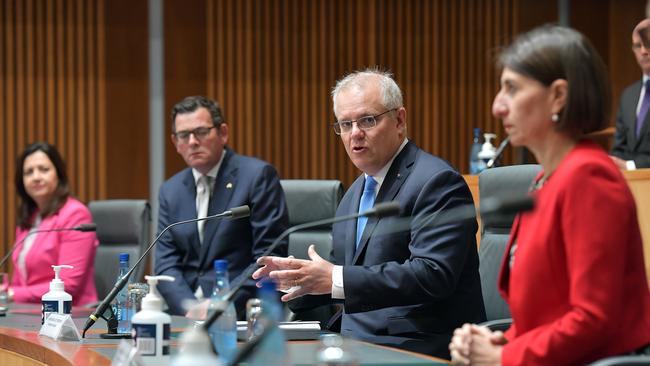
Up in flashing neon lights, then, were all the so-called national cabinet’s failings: nothing happens fast, nothing happens without the commonwealth paying for it and nothing happens without the states separately agreeing to it.
At the start of the pandemic, the federal government did two things: it imposed strict limits on who could enter the country and it provided massive financial support to the businesses and their workers shut down by state government health orders.
This is what largely saved us from more Covid deaths than the 910 to date, and it’s enabled a rapid short-term recovery from the lockdown-induced recession.
But that’s where the commonwealth’s decisive contribution ended. Apart from controlling the national borders and spending money, the Prime Minister, as a former border protection minister and then treasurer, would have been only too painfully aware of the limitations on his authority over a health crisis.
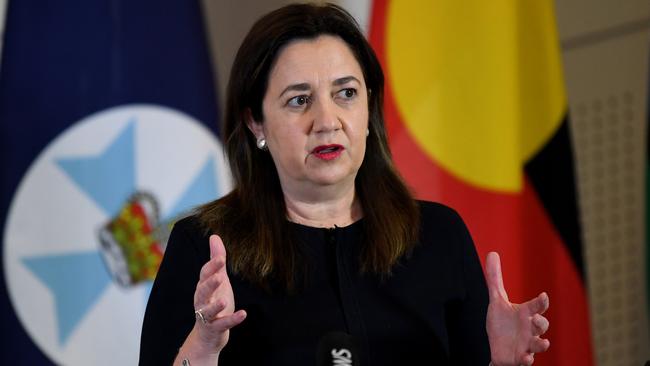
At one level, therefore, the creation of the national cabinet was a stroke of political genius; the ultimate in PR style over substance. It made the PM look like the leader of our pandemic response. At another level, though, it turned the PM into a political hostage.
All the key decisions on who and how to quarantine and when and what to close down were the preserve of the premiers, who quickly worked out that the national cabinet was a marketing ploy rather than a decision-making body; that it was COAG without the bureaucrats, rather than a real cabinet where everyone has a say but the Prime Minister makes the decisions and solidarity means they get backed in.
As someone who has attended them both, I know the difference between a real cabinet meeting and a meeting of the old Council of Australian Governments. Cabinet meetings are often willing affairs, because they matter. Ministers argue fiercely because the decisions stick and they all own them.
Crucially, it’s the PM who determines what the cabinet has decided. A minister who cannot publicly back a cabinet decision must resign.
Likewise, a prime minister who has publicly lost the support of cabinet must resign. The PM might only be “first among equals” under Westminster lore, but no one sitting around a cabinet table doubts who’s boss.
My experience of COAG couldn’t have been more different. As the premiers and chief ministers were all equally heads of government, no less than the PM, all of them would politely explain their various positions on the various agenda items and that would be that; because no one’s position was owed to anyone else.
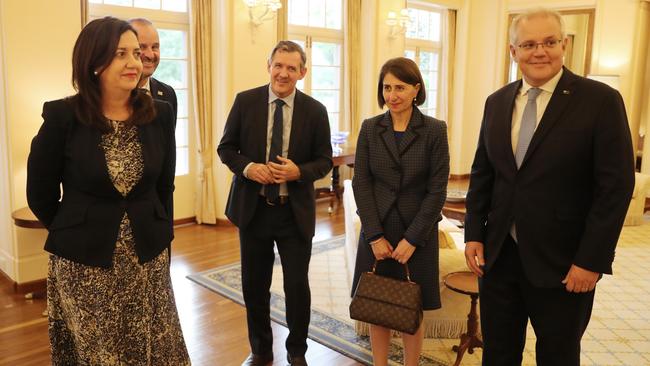
Likewise, all the members of the so-called national cabinet owe their positions to their respective parliaments. The PM can’t remove any of them, nor can they, collectively, remove the PM, so it’s not binding on anyone. That makes it just another talk shop, not a decision-making body; and the illusion is sustained by a misleading title.
In practice, the only actual decisions that would ever emerge out of COAG were those on which unanimity could be achieved. Invariably, these involved more commonwealth spending and greater regulation, and had been decided in advance by officials; and who could say that the national cabinet has been any different? Its decisions to date have always been to endorse the so-called “expert health advice” and have never survived premiers having second thoughts once back in their own jurisdictions.
This debate about AstraZeneca is a case in point. First, it was for everyone, then only for those over 50 years of age, then only for those over 60. It’s now back to everyone, but with doctors indemnified from patient lawsuits and with state leaders on Wednesday (and the Australian Medical Association) preferencing the position of the immunisation expert group, the Australian Technical Advisory Group on Immunisation, rather than the immediate decision of the national cabinet.
A body that could, at best, only ever have been a co-ordinating council has ended up highlighting how uncoordinated our pandemic response has been. Whatever the national cabinet might notionally have agreed, it hasn’t determined when and how the states lock down their communities; when they close their borders; how they run their quarantine systems; how vaccination programs are administered; or how a virus suppression strategy surreptitiously became a virus elimination one. This is despite the fact these are all critical to how our economy survives, whether Covid re-emerges and our ultimate path back to normal life.
What the national cabinet arguably has done, though, is run interference on the commonwealth, given the Prime Minister’s need to maintain at least a veneer of co-operation with the premiers lest he be blamed for a breakdown.
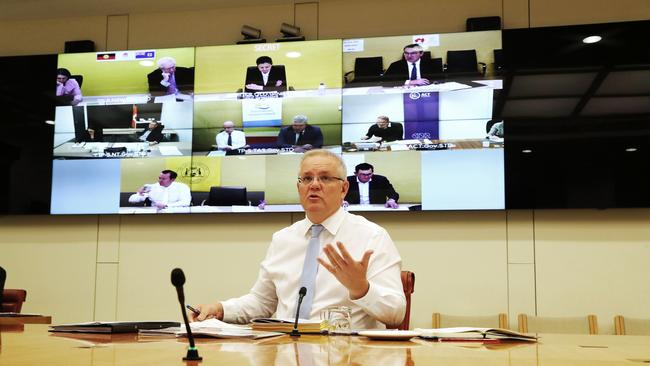
Instead of being the undisputed leader of the Commonwealth of Australia, the Prime Minister has been reduced by the national cabinet to the mere chairman of a fractious federation with Covid warrior premiers playing state of origin while the rest of the world opens up.
Right now, our most urgent national challenge is cranking up the vaccine rollout. With less than 5 per cent fully vaccinated, Australia is dead last of 38 OECD countries at the task Scott Morrison nominated as his most important at the beginning of this year.
Vaccination is normally a commonwealth responsibility: the federal government purchases the vaccines and distributes them to GPs and pharmacies for actual administration. Every year, for instance, without the slightest fuss, more than 10 million Australians manage to get themselves a flu jab at the start of winter.
The commonwealth certainly hasn’t helped the Covid vaccine rollout with its constantly changing advice over who should get the AstraZeneca jab, but having the states involved has made it even more complicated and confused; with less of a quite limited supply available to the doctors and pharmacists who normally get this done.
While calls for more “co-operation and consultation” between different levels of government normally generate head nods, what we really need is more clarity about “who is supposed to do what” so that it’s clear who’s to blame when things go wrong.
The national cabinet has made the lines of accountability and responsibility in our dysfunctional federation even more blurred. It’s given us yet more government-by-committee just when strong national leadership was most needed for a once-in-a-generation crisis.
Peta Credlin is the host of Credlin on Sky News, 6pm weeknights.





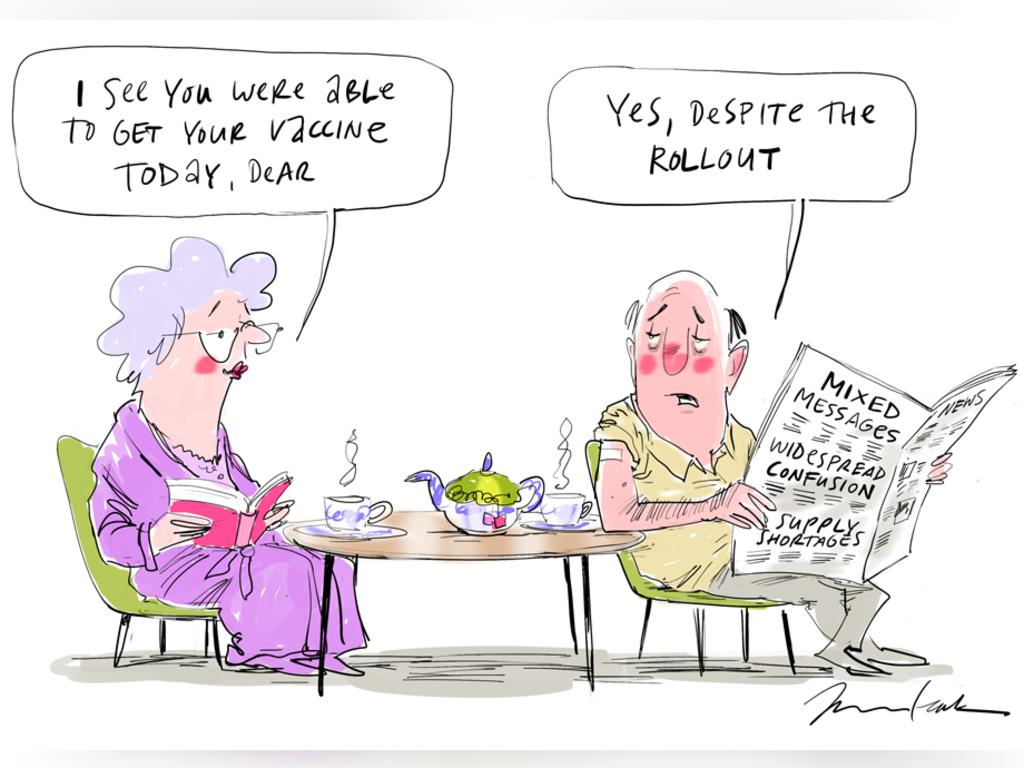


Even though we have a national cabinet, we still don’t have any real national leadership, as is becoming more obvious as this pandemic drags on with no end in sight. This week, yet another crisis meeting supposedly decided that GPs could henceforth give any adult the AstraZeneca jab thanks to a commonwealth indemnity, only to have Victoria and Queensland reserve their positions, with barely lukewarm support from other states, and that all nursing home staff would be vaccinated, but not until September.